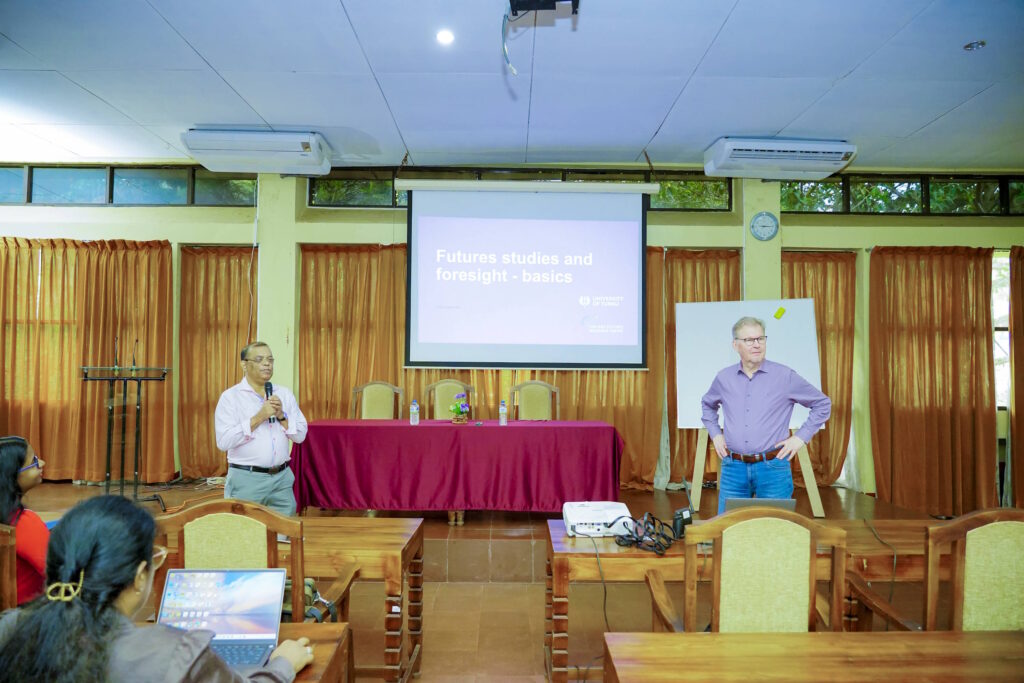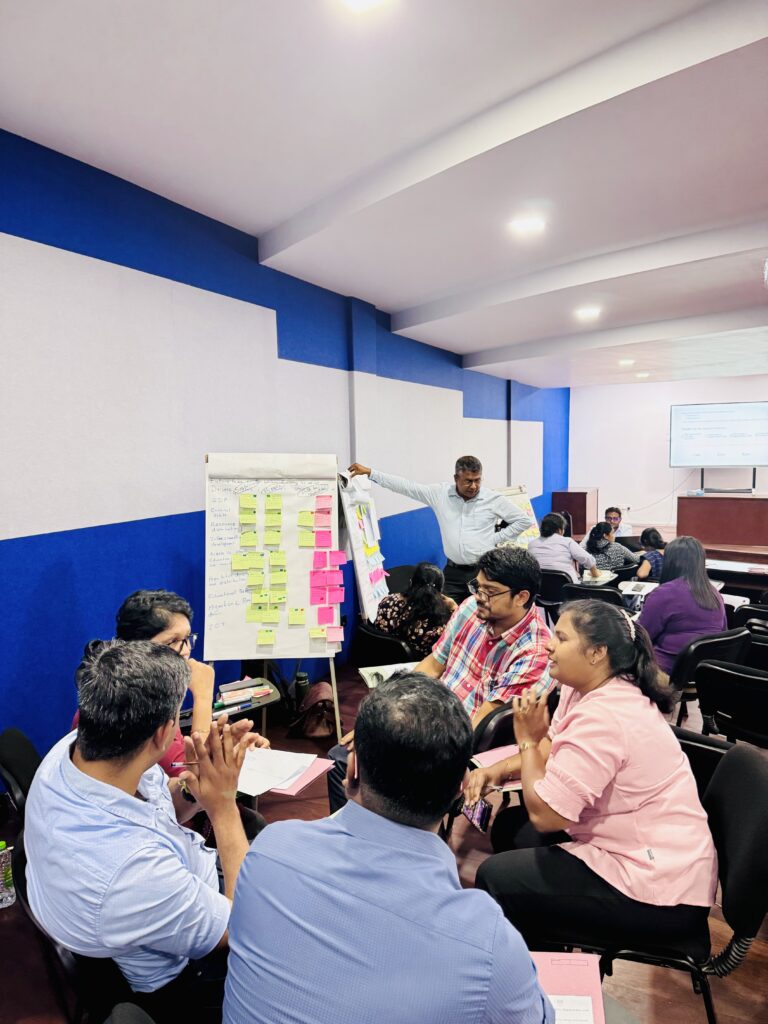From December 10th to 13th, 2024, Dr. Juha Kaskinen, Director of the Finland Futures Research Centre (FFRC), and Junior Expert on Futures Studies, Kalpani Pavithra, conducted a week-long Futures Studies training program at Uva Wellassa University (UWA) and Sabaragamuwa University (SUSL) in Sri Lanka. The sessions engaged approximately 40 participants at UWA and 30 at SUSL, focusing on building the required skills to address climate-resilient development (CRD) through Futures approaches.

The training introduced the basic Futures concepts, commonly used Futures research methods, and their applications in real-world contexts. Theoretical explanations were complemented by Futures Workshop sessions in the evenings to provide participants with practical hands-on experience. Primary approaches included Scenario Planning for envisioning preferred futures, Mental Time Travel exercises to stimulate the creative thinking of the participants, and the Futures Table as a structured tool for analysing and organizing drivers of change. The workshops utilized both paper-based and digital modes. At UWA, traditional materials like poster boards and sticky notes were used, while at SUSL, the digital platform, Miro Board was employed.
The participants gained a solid foundation in Futures concepts and tools, enabling them to apply these approaches to complex challenges such as CRD. By identifying key drivers, crafting scenarios, and formulating strategic pathways, they learned how to envision and plan for sustainable futures effectively. Also, they were able to learn how to utilize a digital platform for futures approaches. The program promoted creativity, awareness of futures approaches and a practical understanding of how Futures methodologies can be utilized to address pressing global issues.

Based on the feedback received after the training, the Futures workshop sessions emerged as the standout element, appraised positively for their engaging format and practical applications, highlighting the valuable insights and collaborative discussions that took place. Compared to their understanding before the session, individuals demonstrated a deeper knowledge of concepts and practices related to these approaches. This improvement indicates that the training effectively equipped attendees with the skills and insights needed to apply futures methodologies in their fields, fulfilling the training session objectives.
Read the full story here.

